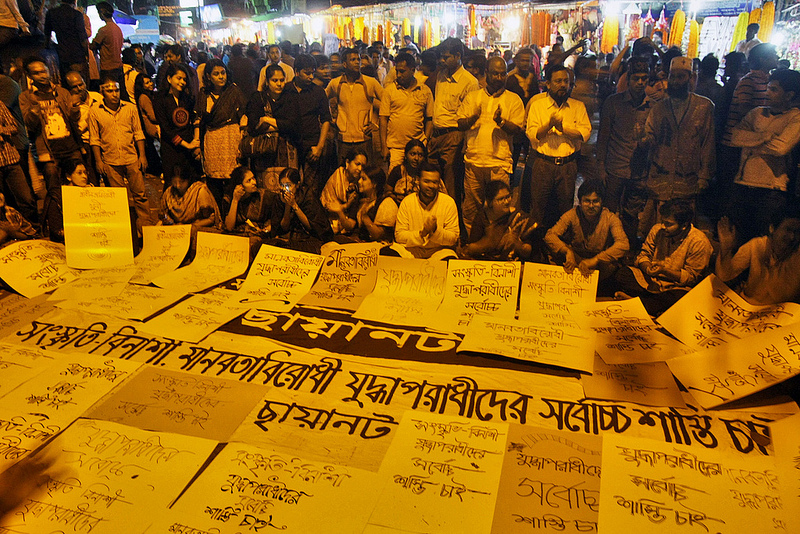With protests raging since early spring, blogger persecution in Bangladesh has reached an all-time high this year. Many say bloggers and activists have been arrested and detained under terms that fall outside of legal limitations. But now the law is catching up.
In late August, the Ministry of Law approved amendments to the nation's Information and Communication Technology (ICT) Act that upend due process, increase criminal penalties for violations of the law, and all but endorse arbitrary, warrantless arrests and detentions of suspected offenders. Without question, the original ICT Act presented plenty of problems when it came to the rights of online speakers — the new amendments will only exacerbate these issues.
Passed swiftly in 2006 by the previous regime (now the opposition) during the final weeks of its last term in power, the law addresses various forms of hacking, breach of data, interference with computer systems and hardware, and “crimes committed using a computer,” in addition to specific kinds of expression online. Section 57 of the law criminalizes “publishing fake, obscene or defaming information in electronic form”:
If any person deliberately publishes or transmits or causes to be published or transmitted in the website or in electronic form any material which is fake and obscene or its effect is such as to tend to deprave and corrupt persons who are likely, having regard to all relevant circumstances, to read, see or hear the matter contained or embodied in it, or causes to deteriorate or creates possibility to deteriorate law and order, prejudice the image of the State or person or causes to hurt or may hurt religious belief or instigate against any person or organization, then this activity of his will be regarded as an offence.
References to damaging a “state's image” and causing the “deterioration” of law and order seem designed to target voices that criticize the government. Under these vague terms, authorities could easily convict any individual for simply speaking out against a government policy or attempting to report on corrupt government activities. Constitutional law expert Shahdeen Malik described Section 57 as “ridiculous” and said that if it is not stricken from the law, it would take the country “towards the medieval age.”
The law also specifically stipulates that crimes committed online will be punished more severely than those that take place offline.
The amendments to the Act, which were made in late August by presidential decree (bypassing the need for approval from parliament), make the law even more troubling. One amendment gives law enforcement agencies unchecked power against the accused, allowing investigating officers to play the role of both the jury and the executioner: Officers may arrest a suspect without a warrant or any means of judicial approval and keep that person in detention for an indefinite period without bail. The amendment offers no guidelines on the ability of the investigating officer and no remedy on misuse of law or harassment of the victim.
The other significant amendment will make sections 54, 56, 57 and 61 (damage to computer systems, hacking, publishing fake content, breach of access) “non-bailable” and non-referable”. They set a minimum sentence of 7 years’ jail time for these offenses and increase the maximum to fourteen years, as opposed to the original 10. Remarkably, punishment remains identical for all kinds of crimes online, ranging from speech-related offenses to major breaches of security.
These amendments also bring the law into conflict with the nation's Right To Information Act. Enacted in 2009, this Act recognizes freedom of speech as one of the basic rights of citizens and promotes proactive disclosure from government and non-government agencies to ensure transparency and curb corruption.
In sum, the law appears to have been written, and now fine-tuned, to satisfy the political needs of government actors who wish to retain broad power over critical voices in society. Many fear the law may be used to detain government critics for indefinite periods without bail, giving near absolute power to the investigating agencies and leaving regular citizens with very little opportunity for recourse.
Rezwan contributed research for this post from Dhaka.





6 comments